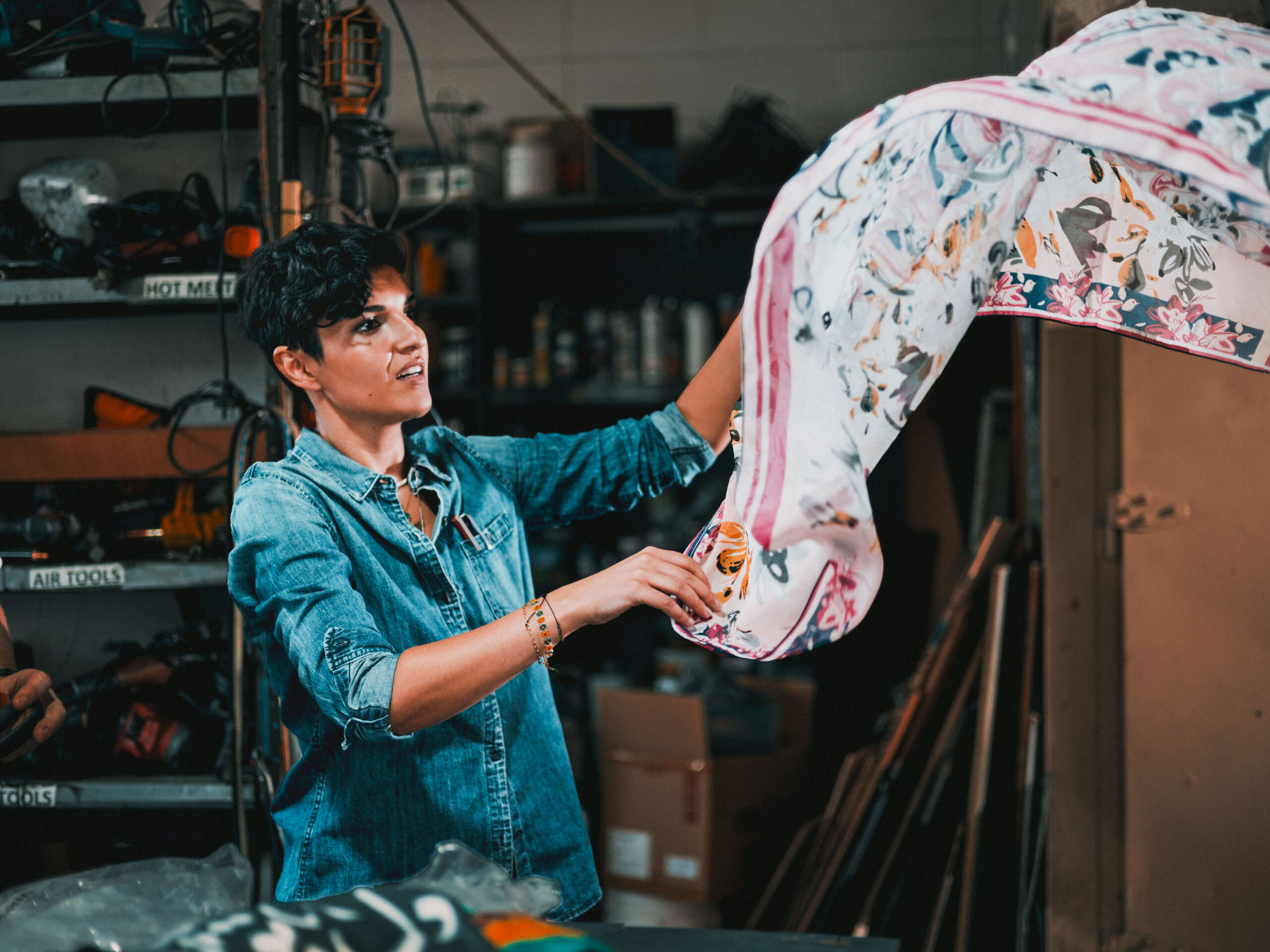
March 3, 2005
For Kicks
Mark Ong was a sneakerhead — that is, one of the thousands of people all over the world who talk and think about sneakers the way that Paul Giamatti’s character in the movie ”Sideways” talks and thinks about wine (only without chemical dependency or pointy-head metaphors about the meaning of life). Then, about a year and a half ago, a Web site called Niketalk held a contest, inviting readers to submit photographs of sneakers they had ”customized” — given new, hand-painted designs. Ong, a graphic designer, reworked a pair of white Air Force 1’s with a safari-print graphic treatment adapted from a different Nike model, and he won. There was no prize, but it was the beginning of a new career. Now known as SBTG (pronounced ”sabotage”), Ong sells his customized Nikes for $350 a pair.
SBTG is not the first sneakerhead to, in effect, go pro. The most famous customizer is probably the Los Angeles-based artist who works under the name Methamphibian, whose shoes (or kicks, as they say) can go for $900 a pair and who is now designing sneakers that are scheduled to be produced by DC Shoes, which makes skateboarding shoes and apparel. But the story of SBTG affords a look at one facet of the sneaker phenomenon — that is, the way that fashion and brand loyalty can come together in what might be considered the folk art of a consumer culture.
Ong works out of his apartment in Singapore, but his projects are transnational. After winning the Niketalk competition, he made a set of 72 pairs of sneakers for a store in Tokyo. He has since released sets with the Hong Kong toymaker adFunture and a London D.J. called Unkle. For Sneaker Freaker magazine, based in Melbourne, Australia, he contributed a step-by-step customizing guide and executed a custom Nike Dunk co-branded with the sponsor Tiger Beer. His shoes are included in the world-traveling sneaker gallery show Sneaker Pimps (sponsored in part by the Finish Line retail chain), and he is starting an apparel line, Royalefam, with Ambush, a Singapore boutique. ”Right up to this day, I still think that it feels kind of surreal,” SBTG told me recently of his transition from fan to brand.
SBTG’s first official U.S. sneaker release last year was at Packer Shoes in Teaneck, N.J. A boutique-style shop that looks as if it belongs in Lower Manhattan, Packer is a spinoff of a family-owned Yonkers store; Michael Packer, who runs the Teaneck store, explained that his father had one of the first Nike accounts in New York. On the night the shoes were released, a couple dozen sneakerheads journeyed to Teaneck and bought most of the 24 pairs of the SBTG X Packer Desert Mayhems.
Sneaker enthusiasm has a long history. Consumers have blurred the lines between athletic gear and stylish streetwear. Sneaker makers have responded by stoking the market for status-giving scarcity by producing limited-edition models that can draw small mobs (although it’s likely that the mobs are mostly sneakerpreneurs who then flip their purchases on eBay for huge markups). Perhaps customizing, the popularity of which is growing, gives consumers more control over what makes a product special.
Maybe the strangest thing about the sneaker subculture is that Nike, a mainstream megabrand, is not shunned like mainstream merlot in ”Sideways” but is at the center of the action. Niketalk.com was not founded by and is not moderated by the company but rather by a handful of dedicated sneaker fanatics who swap news, gossip and opinions about Nike products. Alex Wang, better known in the sneaker community as Retrokid, is an administrator of the site and is another sneaker enthusiast who has gone pro, as the creative director of the magazine Sole Collector. He says Nike is not directly involved in the site, though people at the company read it, and it’s widely believed that some of them post. (Nike declined to comment for this column.) Nevertheless, it’s essentially a community of brand fans, with more than 35,000 registered users. It’s as if a computer-hacker subculture developed around a devotion to Microsoft products. SBTG says he has had only limited contact with Nike, but so far it is the only brand of sneaker he has worked on. ”It’s got nice lines, nice space, it looks right; it sort of motivates me,” he says. ”It’s the perfect canvas.”
This essay was originally published in The New York Times Magazine, March 3, 2005.
Observed
View all
Observed
By Rob Walker
Related Posts

Graphic Design
Sarah Gephart|Essays
A new alphabet for a shared lived experience

Arts + Culture
Nila Rezaei|Essays
“Dear mother, I made us a seat”: a Mother’s Day tribute to the women of Iran

The Observatory
Ellen McGirt|Books
Parable of the Redesigner

Arts + Culture
Jessica Helfand|Essays
Véronique Vienne : A Remembrance
Recent Posts
Mine the $3.1T gap: Workplace gender equity is a growth imperative in an era of uncertainty A new alphabet for a shared lived experience Love Letter to a Garden and 20 years of Design Matters with Debbie Millman ‘The conscience of this country’: How filmmakers are documenting resistance in the age of censorshipRelated Posts

Graphic Design
Sarah Gephart|Essays
A new alphabet for a shared lived experience

Arts + Culture
Nila Rezaei|Essays
“Dear mother, I made us a seat”: a Mother’s Day tribute to the women of Iran

The Observatory
Ellen McGirt|Books
Parable of the Redesigner

Arts + Culture
Jessica Helfand|Essays

 Rob Walker is a technology/culture columnist for
Rob Walker is a technology/culture columnist for